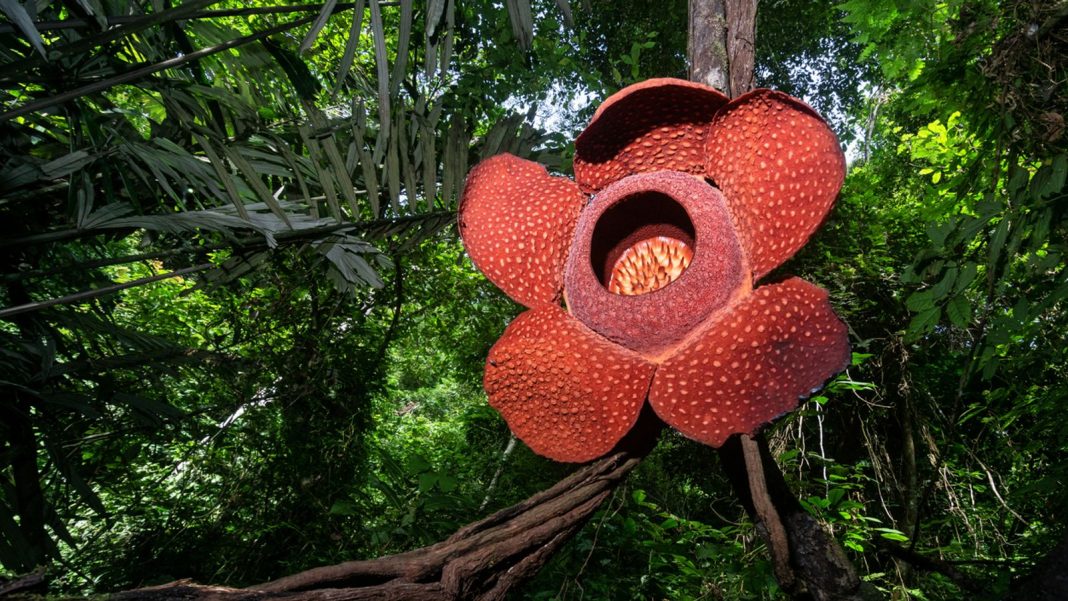
The world’s foulest-smelling flower – which mimics the odour of rotting flesh – could be at risk of extinction.
Scientists estimate 60% of the 42 Rafflesia species are at “severe risk” due to factors such as deforestation and a lack of seed-banking and propagation.
They say some new species may be getting eradicated before they are even known to science.
Rafflesia arnoldii can be as large as one metre in diameter, with London’s Kew Gardens saying it’s the single largest individual flower in the world.
It gives off the pungent aroma to attract the flies that transport its pollen.
The huge flowers have five lobes, are reddish-brown with white spots, and appear for a week.
Rafflesia are found in areas of Indonesia such as Sumatra and Java, as well as parts of the island of Borneo, Malaysia, Thailand and the Philippines.
The flower also plays an important role in indigenous communities, being variously used to make an energy drink, increase fertility and as a cure for fever and backache.
However, experts believe two-thirds of the species currently fall outside of protected areas, making conservation especially tough.
Read more from Sky News:
Largest lake in UK and Ireland poisoned by toxic algae
Man accused of murdering 22 women killed by cellmate
“An urgent, joined-up, cross-regional approach” is now vital to save the “world’s most remarkable flowers”, say scientists in their study which has been published in the Plants, People, Planet journal.
The experts put forward a “multi-pronged” approach to save the flower – with local communities playing a vital role.
They suggest an extension of conservation areas, propagation outside its natural habitat, ecotourism, and social media campaigns to establish it as an “icon” of plant conservation.
“A combined approach might just save some of the world’s most remarkable flowers, most of which are now on the brink of being lost,” said the authors.







